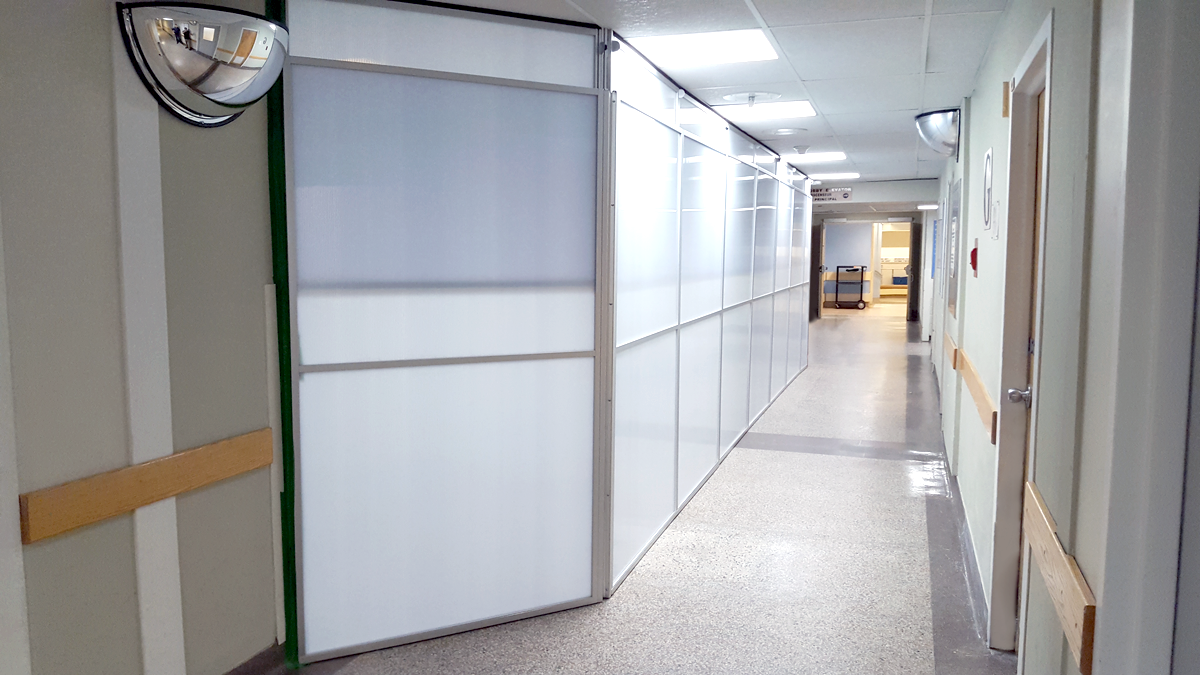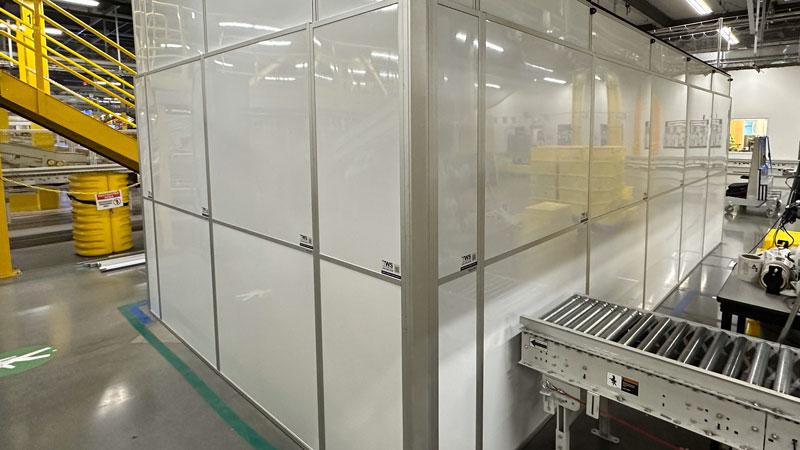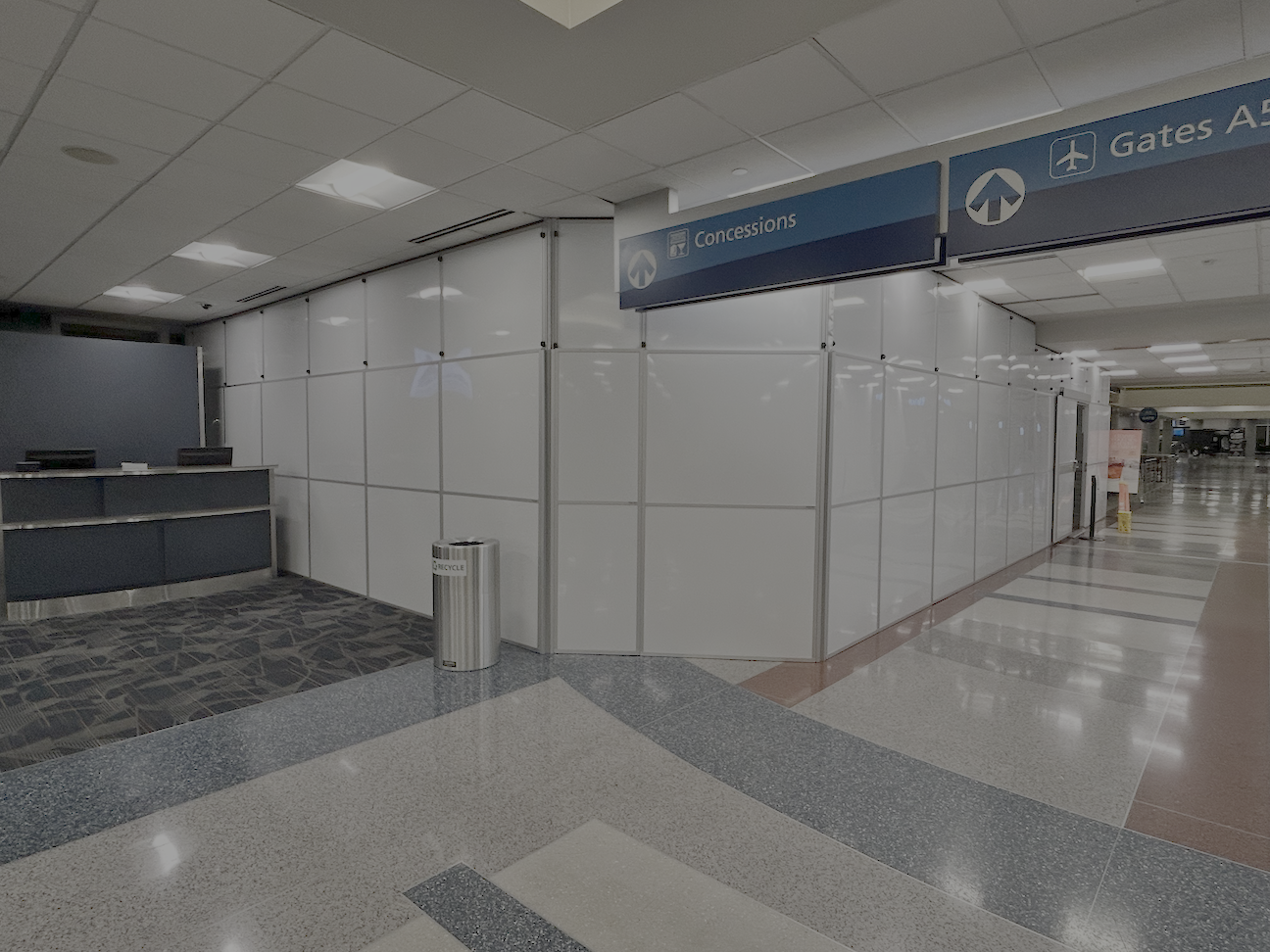The construction industry has been undergoing a significant transformation in recent years, driven by the increasing importance of sustainability and environmental consciousness. Now, more than ever, construction managers are actively seeking sustainable solutions for commercial renovation projects. This shift in mindset is not just a response to environmental concerns but is also driven by economic benefits, changing regulations, and growing demand from environmentally conscious clients. When it comes to temporary walls, there are pros and cons to each type and where they fit withing a sustainable world.
In this blog post, we will explore the key reasons why construction managers are prioritizing sustainability in commercial renovation projects and how this shift is shaping the industry.
Environmental Responsibility
One of the most evident reasons for the increasing focus on sustainability in commercial renovation projects is a growing sense of environmental responsibility. Climate change, resource depletion, and pollution are pressing global issues, and the construction industry is a significant contributor to these problems. Construction managers recognize the need to reduce their environmental footprint and make more responsible choices.
Reducing Energy Consumption: Sustainable solutions in renovation projects often involve upgrading building systems for greater energy efficiency. This means using better insulation, energy-efficient lighting, HVAC systems, and smart building technologies. Lower energy consumption not only reduces environmental impact but also lowers operational costs.
Waste Reduction: Construction generates a significant amount of waste. By reusing and recycling materials and adopting efficient construction practices, waste can be minimized. This leads to less material ending up in landfills, preserving resources and reducing the environmental impact. Renting walls is a simple solution to having a low overhead and still reduce waste.
Eco-friendly Materials: Sustainable renovation projects use eco-friendly materials that have minimal environmental impact. This includes materials with low volatile organic compounds (VOCs) and those sourced responsibly, like FSC-certified wood. Sustainable materials contribute to healthier indoor air quality.
Regulatory Compliance
Regulations and building codes are evolving to encourage and enforce sustainability practices in construction. Construction managers are increasingly aware that they must meet these standards to remain compliant and avoid potential legal issues.
Building Codes and Standards: Many regions have adopted building codes that require new construction and renovations to meet specific sustainability criteria. These codes may set standards for energy efficiency, water conservation, and environmental impact. Compliance is essential for project approval and occupancy permits.
Incentives and Rebates: Some governments and municipalities offer incentives and rebates to encourage sustainable construction practices. These financial incentives provide construction managers with a compelling reason to choose sustainable solutions.
Cost Savings
While sustainable construction practices can have a higher upfront cost, they often result in significant long-term savings. Construction managers recognize that these savings make the investment in sustainability financially attractive.
Lower Operational Costs: Sustainable features like energy-efficient lighting and HVAC systems reduce ongoing operational costs. Over time, these savings can significantly offset the initial investment.
Durability and Maintenance: Sustainable building materials often have greater durability and require less maintenance. This reduces the need for costly repairs and replacements in the long run.
Increased Property Value: Commercial properties that incorporate sustainability features tend to have higher property values and may attract more environmentally-conscious tenants, leading to increased rental income.
Market Demand
Clients are becoming increasingly conscious of the environmental impact of their properties, and many businesses are actively seeking green, sustainable spaces. Construction managers are responding to this demand, recognizing that by offering sustainable renovation solutions, they can attract more clients and remain competitive in the market.
Tenant Satisfaction: Tenants and businesses occupying commercial spaces are increasingly looking for environmentally-friendly properties, especially those that allow them to stay open and have a quick turnaround. Sustainable renovations can improve tenant satisfaction and tenant retention rates.
Corporate Social Responsibility: Many corporations prioritize corporate social responsibility (CSR) and sustainability in their business operations. These companies are more likely to partner with construction managers who share their sustainability goals.
Future-Proofing
Sustainability is not just a trend; it’s a long-term perspective. Construction managers are focusing on sustainability to future-proof their projects. They understand that sustainable buildings will be more resilient in the face of environmental challenges and evolving regulations.
Adaptability: Sustainable renovation projects are often designed with adaptability in mind. This allows buildings to be easily modified and repurposed as needed, extending their lifecycle and value.
Resilience: Sustainable buildings are better equipped to handle extreme weather events and natural disasters. Features like stormwater management and energy resilience can make a significant difference in the face of unexpected challenges.
Innovation and Technology
The construction industry is embracing innovation and technology, and sustainable solutions are at the forefront of this movement. Sustainable construction practices often involve cutting-edge technology and materials that construction managers are eager to implement.
Smart Building Technologies: Sustainable renovations often include the integration of smart building technologies. These technologies improve energy management, security, and occupant comfort, making them an attractive addition to commercial spaces.
Renewable Energy: Solar panels, wind turbines, and other renewable energy sources are becoming more affordable and accessible. Construction managers are exploring ways to incorporate these sources into renovation projects, reducing reliance on traditional energy sources.
Marketing and Branding
Sustainable renovation projects are a source of pride and can enhance a construction company’s image and reputation. Clients are more likely to choose construction managers with a demonstrated commitment to sustainability.
Positive Public Image: Sustainable construction practices generate positive publicity and create a favorable public image for construction companies. This can lead to increased business opportunities and brand recognition.
Attracting Skilled Workforce: Skilled workers, including architects, engineers, and laborers, are often drawn to companies that prioritize sustainability. This can help construction managers attract and retain top talent.
In conclusion, sustainability in commercial renovation projects is no longer an option; it’s a necessity. Construction managers are recognizing the numerous benefits of sustainable solutions, from reducing their environmental impact to saving costs, complying with regulations, and meeting market demand. Sustainability is not just a trend; it’s a fundamental shift that’s reshaping the construction industry for the better. As construction managers continue to prioritize sustainable practices, we can expect to see more innovative and environmentally-conscious commercial renovation projects in the future.



